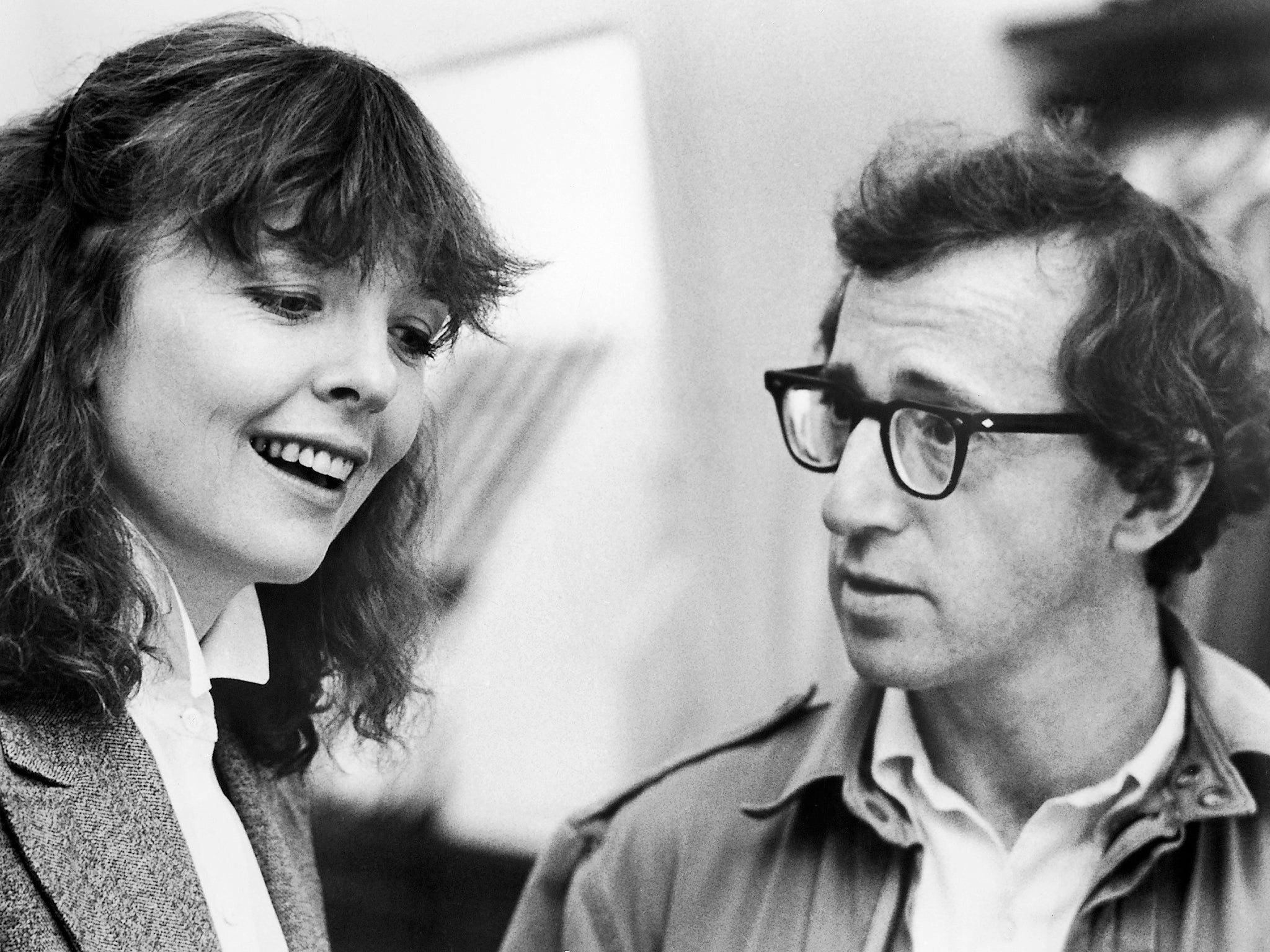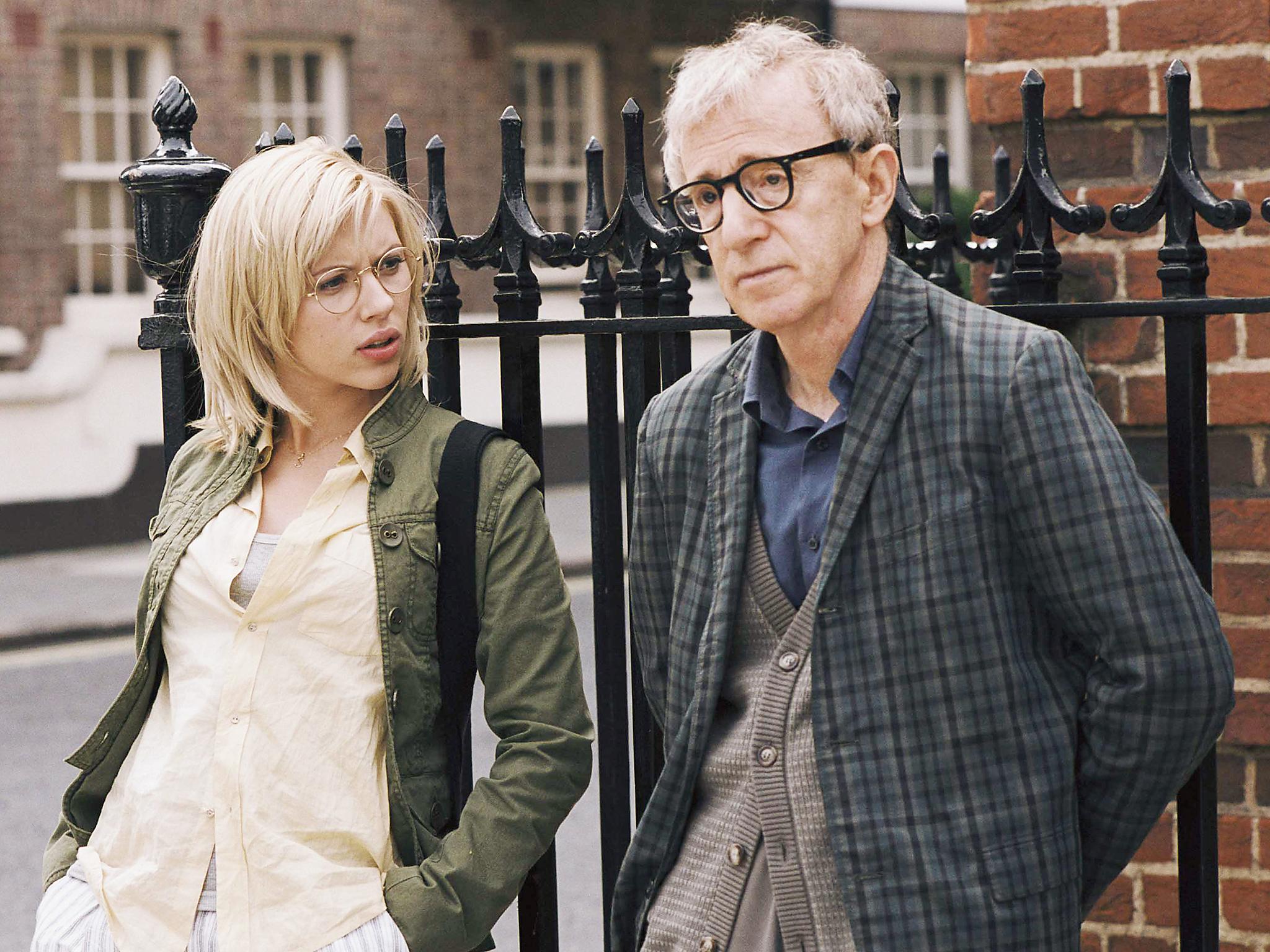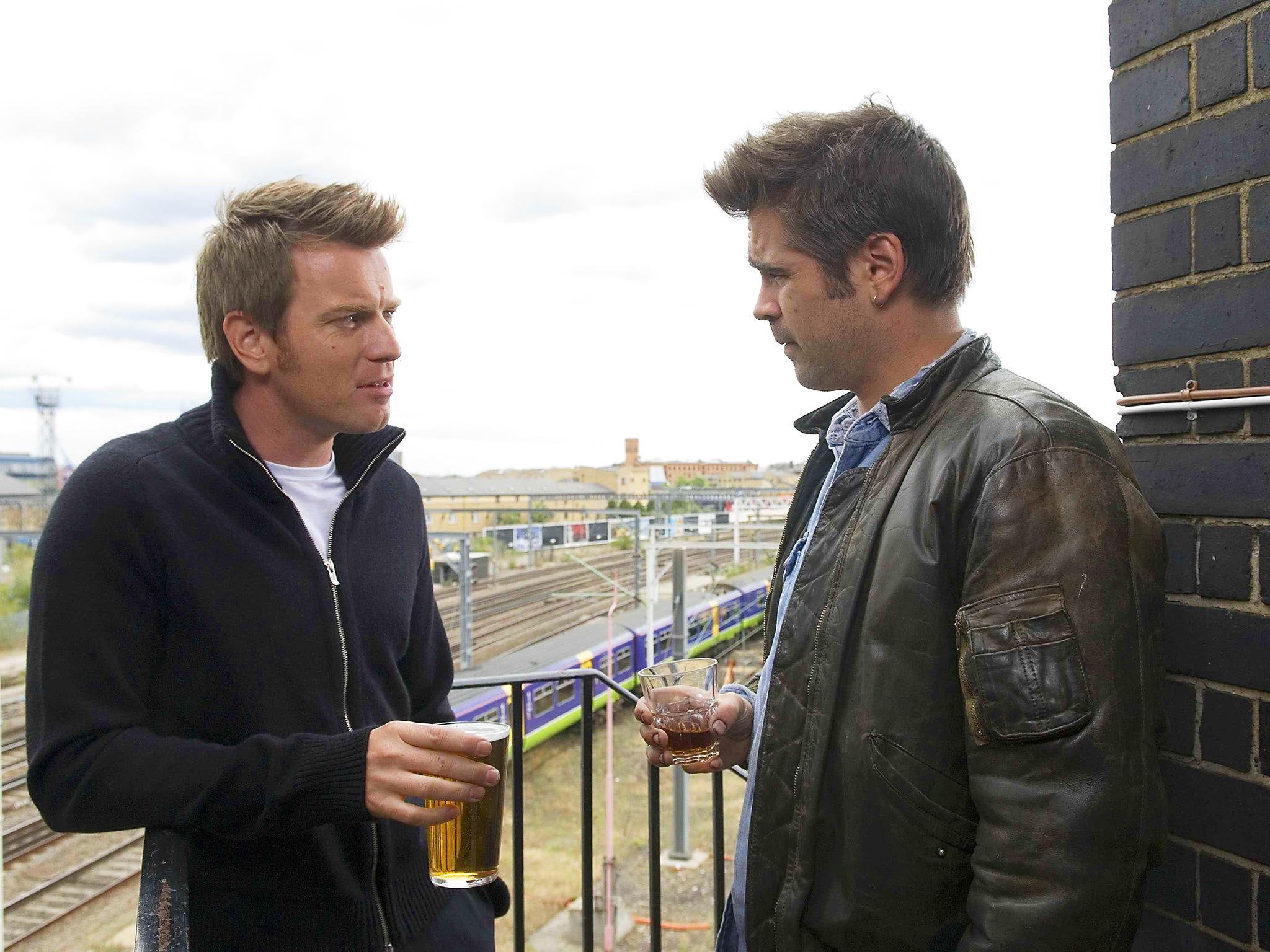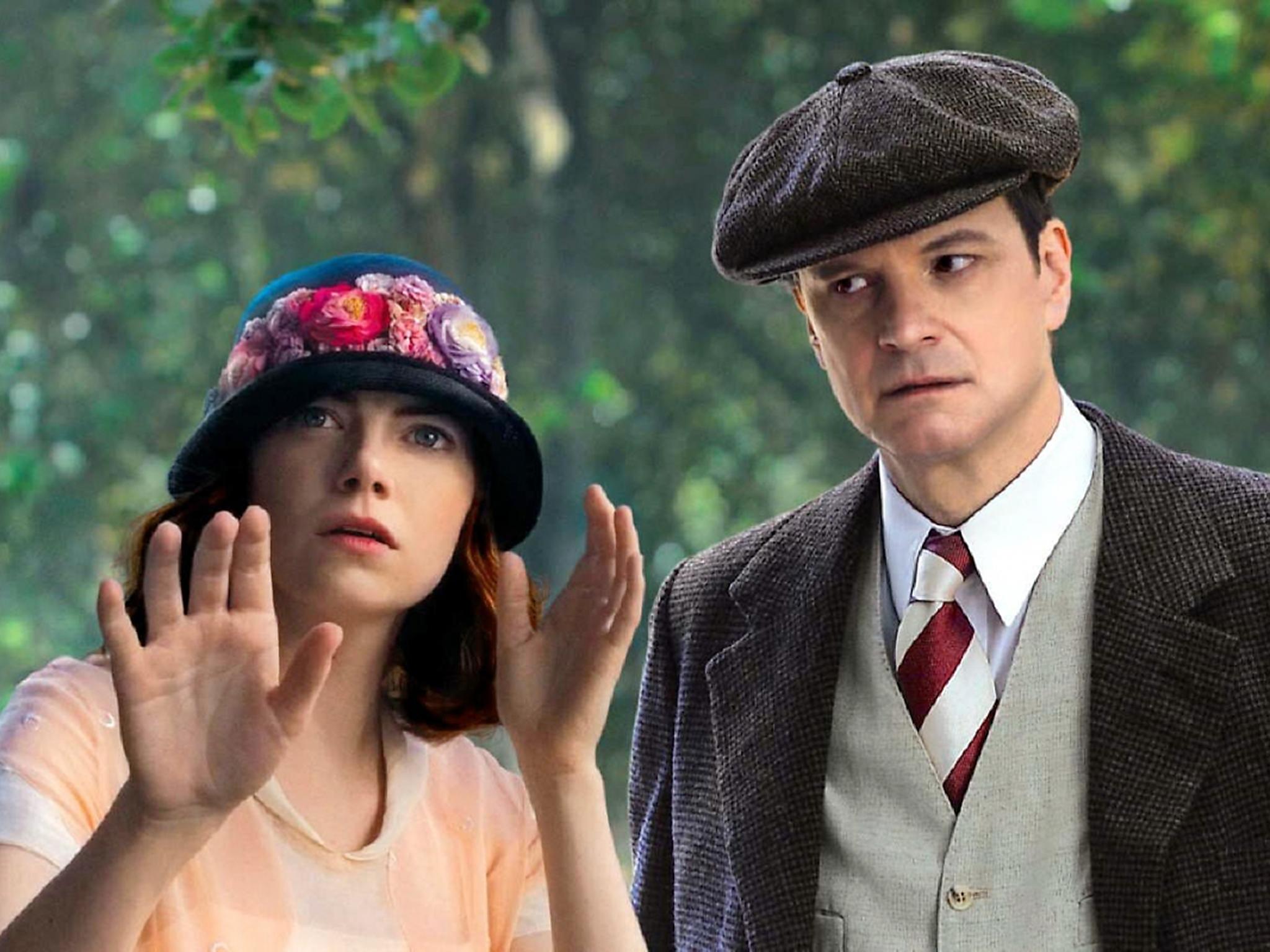Woody Allen: When did he lose It?
It appears to have been downhill for the director ever since the 1979 film ‘Manhattan’, which is released again this week

Your support helps us to tell the story
From reproductive rights to climate change to Big Tech, The Independent is on the ground when the story is developing. Whether it's investigating the financials of Elon Musk's pro-Trump PAC or producing our latest documentary, 'The A Word', which shines a light on the American women fighting for reproductive rights, we know how important it is to parse out the facts from the messaging.
At such a critical moment in US history, we need reporters on the ground. Your donation allows us to keep sending journalists to speak to both sides of the story.
The Independent is trusted by Americans across the entire political spectrum. And unlike many other quality news outlets, we choose not to lock Americans out of our reporting and analysis with paywalls. We believe quality journalism should be available to everyone, paid for by those who can afford it.
Your support makes all the difference.Manhattan is the pinnacle of Woody Allen’s success. Released again this week, his 1979 film borrows grandeur from a fellow New York Jewish genius with its George Gershwin score, lets you bathe in the black-and-white cinematography of Gordon Willis, and settle back in the company of Allen at his most urbanely sharp, alongside his greatest screen partner (and former lover) Diane Keaton.
This was the culmination of Allen’s determined progress from 1950s gag-writer to 1960s stand-up, to writer-director-star of satires such as Sleeper. Keaton had been crucial in warming up his screen persona’s nervous, nebbish misanthropy, especially in Annie Hall (the anti-Star Wars hit of 1977). They are iconic together again in Manhattan, kissing in silhouette at dusk under the Queensboro Bridge. This was the film where Allen’s serious themes and comic expression achieved perfect balance. His performance is understated and wise. At home in the US especially, it’s been downhill ever since.
Other widely praised films were scattered through Allen’s prolific output of the 1980s and 1990s, including the multiple-Oscar-winning Hannah and Her Sisters (1986). But fans already mourned the loss of the “early, funny ones”, in Allen’s own dismissive phrase from 1980’s Stardust Memories. And in the 21st century, even critics gave up the ghost. Some of his 17 films this millennium have been better reviewed than others; some considered a return to form, others not. But there is a melancholy, unspoken acceptance that these are the works of a former great. Just when, the underlying question goes, did Woody Allen lose it?

The real schism in his work came with Husbands and Wives (1992), released into the heart of the storm of Allen’s break-up with his long-time partner and co-star Mia Farrow, after she found his naked photos of her 21-year-old adopted daughter with former husband Andre Previn, Soon-Yi Previn, forcing him to admit their affair (they married in 1997). The subsequent accusation of sexual abuse of seven-year-old Dylan Farrow, one of Mia and Allen’s adopted children, was investigated and dismissed in 1994. Though puzzled by the fuss, Allen knew his work was in peril. “Maybe people are angry that I was having a relationship with a young woman,” he told The New York Times. “Maybe very few people will ever come to see a movie of mine again.”
Finished by Allen and Farrow before this catastrophe, Husbands and Wives’ hand-held cameras matched its jangled, furious yet comic response to romantic fracture and self-deception. Instead of darkening further, Allen’s 1990s continued with the comforting return of Keaton in the lovely screwball thriller Manhattan Murder Mystery (1993), and a cathartic release of comic energy and genre invention, from the musical Everyone Says I Love You (1996) to the fictional jazz biopic Sweet and Lowdown (1999). The latter was his funniest script of the decade, one not coincidentally written in the 1970s. The legendary facility for one-liners he’d found too easy when attempting Bergmanesque depths in dull, unloved dramas such as Interiors (1978) proved hard to relocate.

But Allen’s late period really started this century. It’s then that his relentless productivity burned out audiences, distributors and critics. Hollywood Ending (2002) and Scoop (2006) weren’t even released in the UK. And few could still be bothered to distinguish between Anything Else (2003) and Whatever Works (2009), as repetitive in theme as they sound.
There was a practical reason for this precipitous decline. American distaste at the Soon-Yi affair damaged his relationship with US studios, forcing drastic budget-cutting in 1998. Crucial crew members could no longer afford to work for him, with the loss of long-time editor Susan Morse especially disastrous. Twenty-first century Woody looked plainer and cheaper. And it could plod.
Recoiling from the complex shoot for Radio Days in 1987, Allen had anyway told Rolling Stone he looked forward to “more relaxing film-making”. “My work doesn’t have the sense of labour to it,” he noted; he felt no guilt making choices where, “‘This may be worse but it’s easy.” Ewan McGregor voiced his surprised delight at going home at 4.30pm from an Allen shoot in 2007, and Colin Firth described the rarity of “one of those days when [Allen] got involved” on-set in 2014. This was a director who gave actors no preparation time, and preferred first takes. Half-arsed moments could result. So would a quality of light, life-like spontaneity in later Allen, from actors who’d barely read their script.

If one film signalled fatally blown talent, though, it was The Curse of the Jade Scorpion (2001), a comic take on The Maltese Falcon. To his own dismay, Allen couldn’t afford to reshoot scenes that looked haphazardly unconsidered. Swapping his trademark black-framed glasses for rimless ones, Allen the till-then-ageless icon looked every weary one of his 66 years. Three further US flops – Hollywood Ending, Anything Else and Melinda and Melinda (2005) – followed, forcing Allen into long-term career exile in Europe, where the French, Italians and Spanish still loved him. Melinda and Melinda’s laboured debate on comic and tragic narratives, with Will Ferrell wildly miscast as a substitute Woody, was a grim goodbye to New York.
But The Curse of the Jade Scorpion wasn’t the end. While his reputation as a director of Bergmanesque profundity grew tattered, Allen’s writing for his own persona, as immortal in its way as Chaplin’s, revived. Anything Else saw Allen’s character, Dobel, give life-lessons to American Pie star of the moment Jason Biggs, adding a darkly hilarious edge to his long-time screen paranoia at anti-Semitism, as he made jaw-dropping Holocaust jokes rooted in real fear.
A move to the UK then began with a hit thriller starring Scarlett Johansson, Match Point (2005), before diminishing returns reached their nadir with Cassandra’s Dream (2007), a morose rehash of the far superior Crimes and Misdemeanours in which Colin Farrell and Ewan McGregor are all at sea as depressed cockney killers. Though tarted up with a Philip Glass score, it even looked like an EastEnders episode.

A Spanish trip with Johansson for Vicky Christina Barcelona (2008) revived Allen’s fortunes, and gained co-star Penelope Cruz an Oscar. But the least remarked of his three films with Johansson, Scoop, was also hugely enjoyable. Another comic thriller, it saw Allen form his most charming double-act since Keaton with Johansson’s klutzy journalism student, two Jewish New Yorkers pretending to be dad and daughter as they take anarchic potshots at the English aristocracy, and amateurishly sleuth Hugh Jackman’s Ripperish lord. “I was born into the Hebrew persuasion,” Allen informs his posh English hosts, “but when I was older I converted to narcissism.” The wordplay again poured forth from a man whose early jokes entered the language, Shakespeare-style.
Allen literally writes his film ideas on the backs of envelopes, he once told Empire, and Scoop was especially daffy, hinging on Ian McShane’s late Fleet Street hack picking up a killer’s identity in the afterlife, and rematerialising to pass on the scoop. Careless plots and outrageous coincidence mar recent scripts, as do clumsy pick-up lines unsuited to the new century. A penchant for writing stupid or aggravating female parts has also been attacked. Allen’s barely disguised portrait of Keaton’s early, ditzy ways, Annie Hall, was softened by mutual love, in a truly romantic film. Lately, though, Mira Sorvino’s dim prostitute in Mighty Aphrodite (1995), Christina Ricci’s seductive, selfish girlfriend in Anything Else, and Evan Rachel Wood’s intellectual derision by Woody-surrogate Larry David in Whatever Works have fared less well.
And yet, in the hands of fine actresses, these often dislikeable parts are more sizeable and interesting than the anaemic Hollywood norm (Sorvino won an Oscar for hers). The problem is the perception of Allen since 1992, more than real changes in his films. When Jason Biggs mentions that Ricci’s character was attracted to her father, or Allen or one of his substitutes attempts seduction, real life rears up. This was literally so when Cate Blanchett was Oscar-nominated for the acclaimed Blue Jasmine (2014). Her chances were torpedoed when Dylan Farrow repeated her allegation of being abused.
Midnight In Paris (2011), with Owen Wilson as the latest ersatz Woody, only had one good joke, a ratio barely bettered by To Rome With Love (2013), the one-line well perhaps at last dry. But the former stop on Allen’s culturally superficial, budget-led Euro-tour was a surprise hit, which even revived his US fortunes. Allen has hit a deft, middlebrow groove since with Magic In the Moonlight and Café Society, both set between the wars in his version of heritage cinema, though with melancholy untapped by Downton Abbey. Irrational Man (2015), though, threw another curve, with Emma Stone following up Magic In the Moonlight as co-star, and Joaquin Phoenix as a depressed, pot-bellied philosophy professor, who suicidally swoons towards a loaded gun.
Late Woody is flawed, difficult, but dizzyingly unpredictable and sometimes still dazzling. Maybe he hasn’t yet lost it at all. Distrust of his real life has instead made us lose touch with him.
‘Manhattan’ is rereleased on 12 May
Join our commenting forum
Join thought-provoking conversations, follow other Independent readers and see their replies
Comments